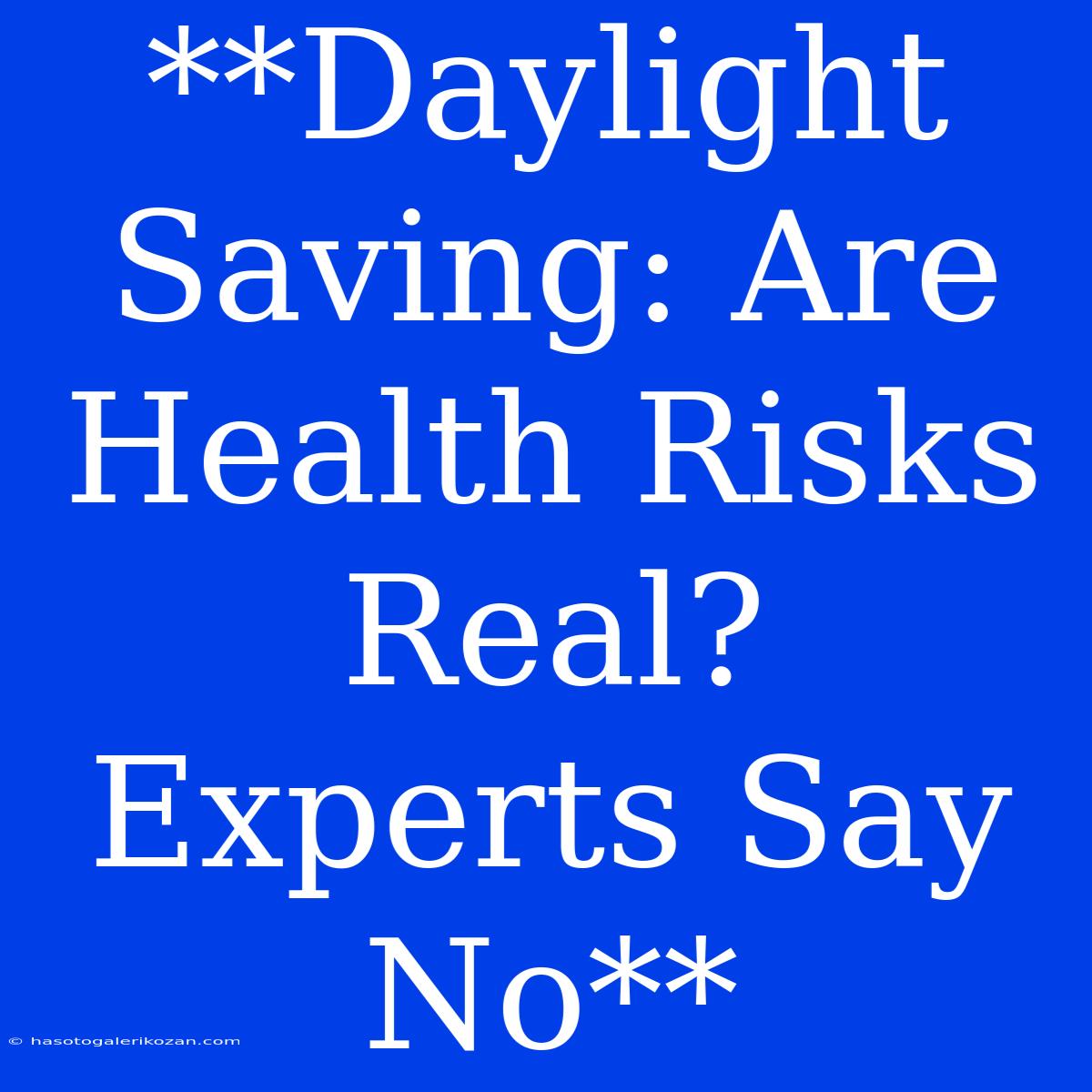Daylight Saving: Are Health Risks Real? Experts Say No
Daylight Saving Time (DST) is back, and with it comes the annual debate about its potential health effects. While some people swear by the "spring forward" causing everything from increased heart attacks to disrupted sleep patterns, scientific evidence actually points to minimal, if any, health risks associated with the time change.
Debunking the Myths: No Evidence for Major Health Concerns
One of the most prevalent claims is that DST leads to increased heart attacks and strokes. However, numerous studies have found no significant correlation between the time change and cardiovascular events. In fact, a 2015 study published in the journal "Stroke" found that, in the United States, there was a slight decrease in the risk of stroke during the week following the start of DST.
Another common worry is that DST disrupts sleep patterns and leads to fatigue. While it's true that adjusting to a new sleep-wake cycle can cause temporary sleep disturbances, most people adapt within a few days. The effects of DST on sleep are usually mild and short-lived.
Potential Benefits of Daylight Saving Time
While the potential health risks of DST are largely unfounded, there are actually some potential benefits associated with the time change.
Increased Daylight Hours: The most obvious benefit is more daylight hours in the evening, which translates to more opportunities for outdoor activities and exercise. This can have a positive impact on mental health and well-being.
Reduced Energy Consumption: DST can also contribute to energy savings. With more daylight hours, people rely less on artificial lighting, which reduces electricity consumption.
Staying Healthy During the Time Change
While the overall health risks of DST are minimal, there are some things you can do to minimize any potential discomfort during the transition:
- Adjust your sleep schedule gradually: Start adjusting your sleep schedule a few days before the time change.
- Be mindful of caffeine and alcohol: These substances can disrupt sleep patterns, especially during a time change.
- Expose yourself to sunlight: Spending time outdoors during the day can help reset your internal clock.
In Conclusion:
While anecdotal evidence might suggest a connection between DST and health problems, scientific research has not found any substantial evidence to support these claims. The potential risks are generally minimal and outweighed by the benefits of increased daylight hours and potential energy savings. So, embrace the extra daylight, get outside, and enjoy the longer days!
